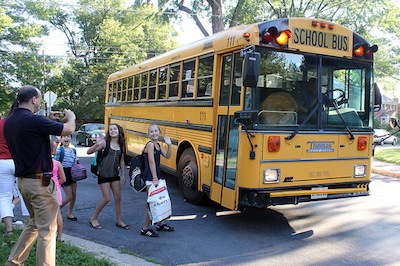Does Parent Involvement in School Help Students Succeed?
If you have a child attending school, getting involved in his or her learning is a must. Research by various groups over the past 3 decades points to the positive impact a parent’s relationship with school has on a child. From research groups, including the National Coalition for Parent Involvement (NCPI), to various levels of government, there is agreement: Parents need to become involved in their children’s education.
Why get involved?
Research indicates involvement in a student’s school work and life results in positive benefits. Studies indicate the following positive effects:
- Improvement in school learning and better attendance
- Students are more likely to earn higher test scores, grades and attend higher education
- More positive attitudes and behavior
- Parents have a sense of empowerment and are better able to help their children learn at home
- The morale of the teachers actually improves
Moreover, there are indications that when enough parents interest themselves in their child’s education, it benefits the classroom, school and the community overall.
What can a parent do?
Parents, as well as other members in a family, can take part in different ways. New research suggests traditional involvement, such as attending PTA meetings or volunteering in the classroom, are not as “high-impact” as once thought. Parent involvement at home has a more lasting impact than involvement just at school.
It is important for schools to create a welcoming environment for parents who may face a language barrier or are unsure how to help, and to communicate preferred ways for parents to be involved. Student success is a two-way street; parents are most helpful when schools are open to creating a partnership!
Here are a few ways parents and other family members can be a part of a student’s success:
- Generally create a positive learning environment at home and communicate the importance of schooling. This is something all parents, even those who do not have time to attend school meetings, can do.
- Communicate with a student’s teacher about his or her performance and ask about strategies or effective ways to help with homework at home
- Attend a school meeting or school event
- Take part in a parent-teacher conference
When should a parent get involved?
Some parents are more likely to participate in their children’s education than others, studies indicate. Parents with children attending grades K to 8 are more active than those with older children, but involvement during high school is just as important. Even involvement in early childhood programs can help a child transition into kindergarten.
Culture and socioeconomic status also play a role in which parents get involved in their students education and how, studies show. It is important for schools to respect family limitations and find new ways to engage parents who have trouble interacting with the school.
Conclusion
When setting a child up to succeed in school and in life, it is important to emphasize the importance of learning. Simply attending a parent-teacher conference is not enough. Get involved with your child and his education at home and at school, and the positive impact can last a lifetime.
Photo: A father accompanies his children to the bus stop. Credit: woodleywonderworks / Flickr


1 Comment